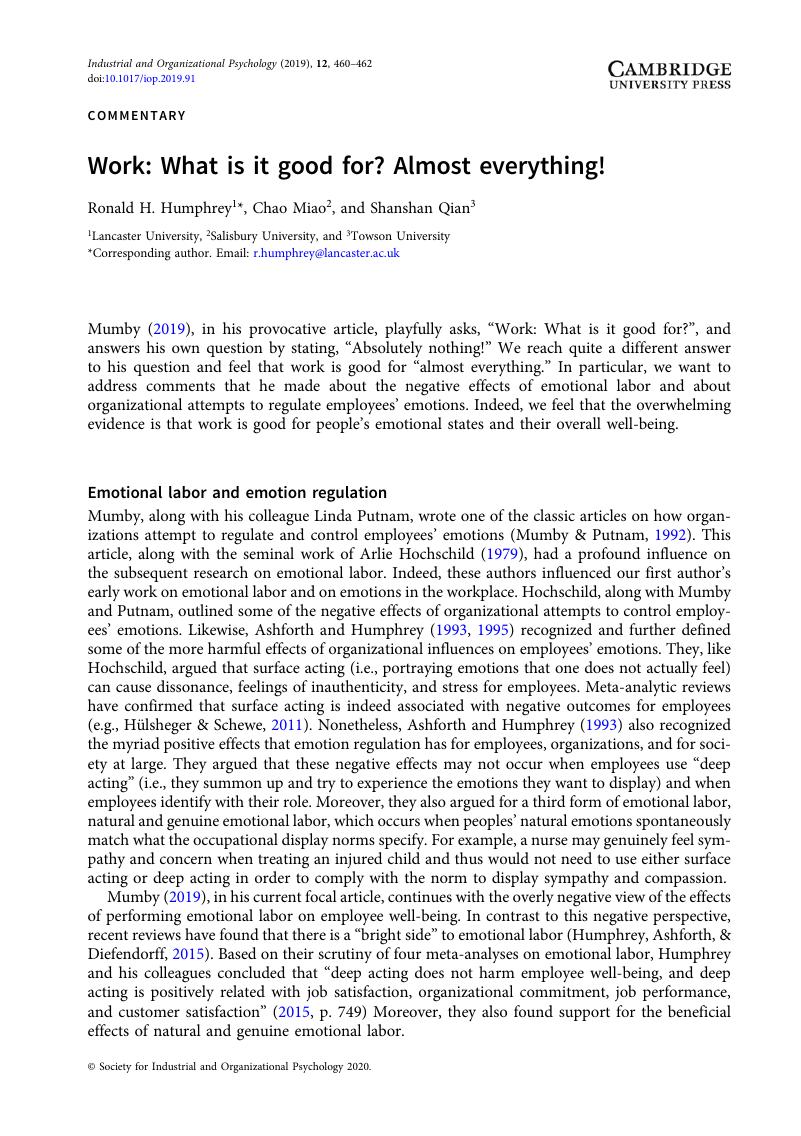Crossref Citations
This article has been cited by the following publications. This list is generated based on data provided by Crossref.
Zacher, Hannes
and
Rudolph, Cort W.
2020.
Beware of “Populist Science”! – A Commentary on Bal (2020).
Zeitschrift für Arbeits- und Organisationspsychologie A&O,
Vol. 64,
Issue. 3,
p.
202.
Pathak, Saurav
and
Goltz, Sonia
2021.
An emotional intelligence model of entrepreneurial coping strategies.
International Journal of Entrepreneurial Behavior & Research,
Vol. 27,
Issue. 4,
p.
911.
Reif, Julia A. M.
Spieß, Erika
and
Pfaffinger, Katharina F.
2021.
Dealing with Stress in a Modern Work Environment.
p.
1.



